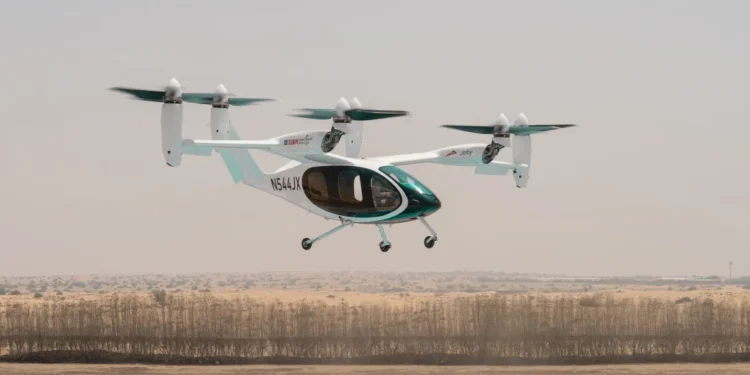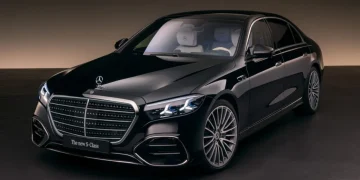For decades, flying cars have been stuck in science fiction. But now, one of the most promising versions of that dream the electric air taxi is about to take off for real. And not in Silicon Valley or Manhattan, but in Dubai.
Joby Aviation, a California startup building electric vertical takeoff and landing (eVTOL) aircraft, has delivered its first production model to the United Arab Emirates. The company says it will begin commercial air taxi flights in early 2026. This isn’t a sketch on a whiteboard or a prototype in a hangar. It’s a real aircraft, tested with pilots onboard, sitting on foreign soil and preparing for launch.
That matters. Not because it’s futuristic, but because it’s functional.
What’s New Here
Joby’s aircraft seats five, including one pilot and four passengers. It takes off like a helicopter, flies like a plane, and makes almost no noise compared to conventional aircraft. It can hit speeds of 320 kilometers per hour, fly 240 kilometers on a charge, and land on compact vertiports being built around Dubai. Think of it as an Uber, but in the sky and electric.
This delivery is Joby’s first to a customer outside the U.S., and it comes with a six-year exclusive agreement to operate in Dubai. The company is also working with the FAA back home to complete the final certification steps, including test flights flown by government pilots.
Put simply, this isn’t a concept anymore. It’s the early version of a product.
Why It Matters
If you’ve ever been stuck in rush-hour traffic crawling across Sheikh Zayed Road or battling your way from JFK to Manhattan, this technology makes immediate sense. Air taxis won’t replace subways or buses, but they could dramatically cut short-trip travel time in dense cities. A 40-minute road journey could turn into a 10-minute sky ride. No traffic, no exhaust, no noise.
But here’s the catch. None of this will work if the aircraft isn’t safe, the ride isn’t comfortable, and the price isn’t reasonable.
Joby knows that. It’s testing aircraft in hot weather, training flight crews and mechanics, and preparing to operate from major sites like Dubai International Airport and Palm Jumeirah. It is also trying to scale production in Ohio, deliver more aircraft to the U.S. military, and prove to regulators and passengers that this service can be trusted.
Still Early, but Not Vaporware
Joby isn’t making money yet. The company brought in zero revenue in Q1 2025 and has spent over $1 billion in development, including $750 million from Toyota. That’s a lot of money riding on a vision.
But this week’s delivery in Dubai changes the conversation. It is no longer about when Joby will fly. It is about how many cities it can fly in, how soon, and at what cost.
And for those of us who care more about tech that works than hype that fades, that’s the real milestone.














